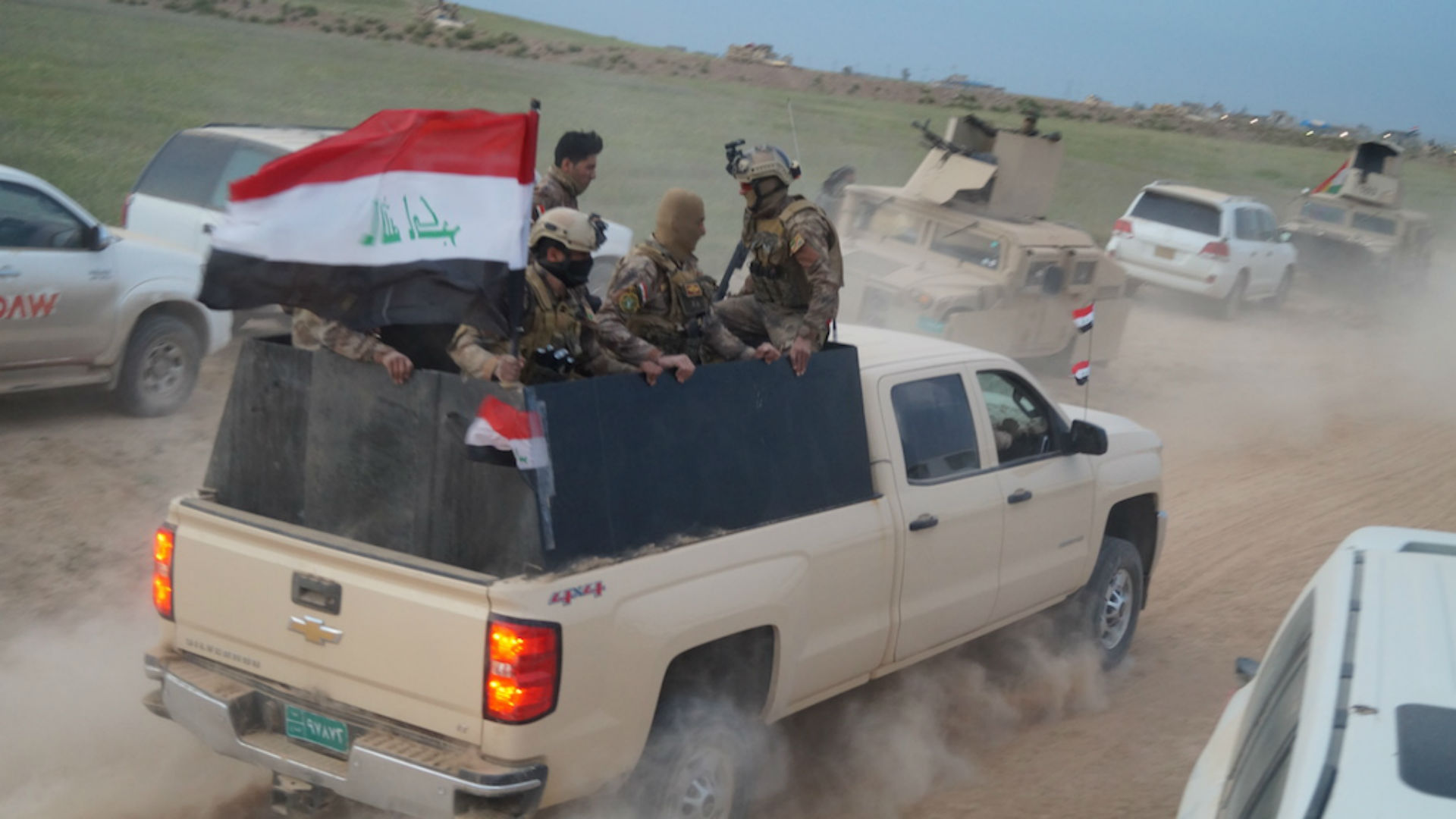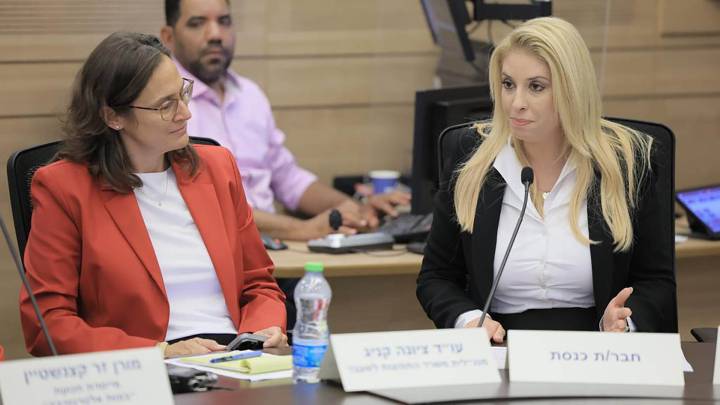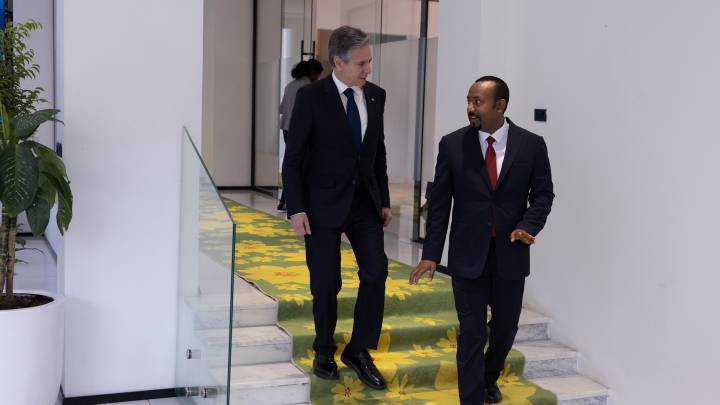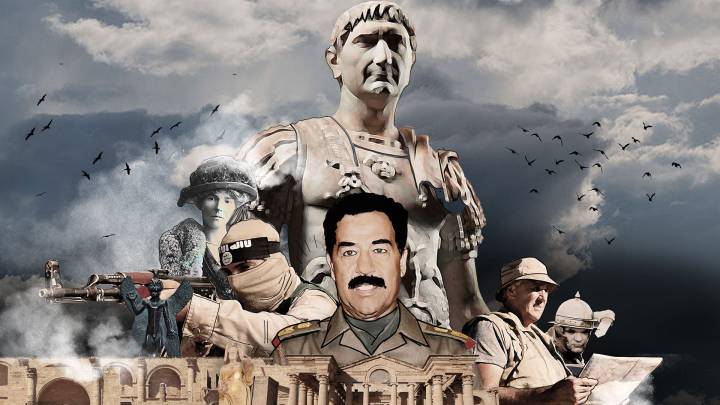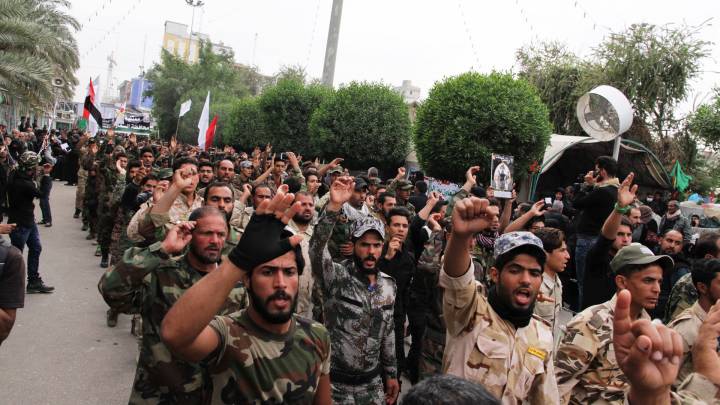Munqith Daghir runs the Iraqi polling organization IIACSS. The rise of the so-called Islamic State (IS) could have been predicted, he believes. He shares what to expect from the newly formed government and why the S in IS matters more than the I.
zenith: It took until 2014, when Abu Bakr al-Baghdadi proclaimed the Caliphate, that the world recognized the full devastating potential of the so-called Islamic State (IS). How many warning signs had been overlooked in the years prior?
Munqith Daghir: Many. In Iraq, there were clear signs, especially after 2011. We saw a lot of protests the government, especially in Sunni-dominated areas. People were demanding to respect their rights, suffering from the unfair way of how they were treated. A direct result of this protest movement was a massacre in the city of Hawija, a Sunni Arab district near Kirkuk, which later became one of the main IS strongholds.
Why did the situation escalate so violently?
The army attacked the demonstrators and killed almost a hundred people. When Prime Minister Nouri al-Maliki was asked about the protest, he called the demonstrators ‘extremists’ and promised to “deal with them accordingly”. Then the Armed Forces and the police attacked. After that, all our surveys showed an extremely high dissatisfaction with the situation, people didn’t trust the government, they trusted neither the police nor the army. So yes, there were lots of signs that people were suffering and that it would be easy for anyone to convince them to turn against their government.
Your data describes a grave discrepancy in how people of different religious denominations perceived the situation back then. While the Sunnis felt more insecure and displayed less trust in the government, the Shiites seemed more content with the status quo.
Maliki and his government tended to frame the situation as a sectarian power struggle. They had this idea, that Sunnis were trying to reclaim political power. So many Sunnis felt being treated as second-class citizens and indeed, people suffered a lot – for example from massive corruption within the government.
The narrative the Iraqi government spun in response to the protest exacerbated the situation.
My data tells me that this reaction led to shrinking trust in the government. People asked for basic public services, jobs and security – Daesh exploited these grievances, even sent their representatives to fuel protests, thus adding oil to the fire.
‘All our surveys show that among the main successes people attribute to them were that they provided security and public services. Many people simply felt better compared to the situation before’
In the following year, approval rates for the central government declined even more, especially in the Sunni-dominated areas. Why did no one in the Iraqi government manage to grasp the repercussions of that sharp decline in trust?
I have been working in polling in Iraq for 16 years now. Only quite recently – during the latter stage of the government of Haider al-Abadi – authorities have started paying attention to my data. Before that, they either accused me of being sectarian or a Saddam supporter spreading Baathist propaganda. And besides, the government never measured public opinion on its own.
Your data shows that initially, people had very basic demands. Is it fair to say that the rise of Daesh was at least partly possible because the Iraqi government failed to provide adequate services to its citizens?
Yes. During the Daesh era – especially in the early stages between June 2014 and the end of 2015 – all our surveys show that among the main successes people attribute to them were that they provided security and public services. Many people simply felt better compared to the situation before.
In the West, people were surprised, when Daesh introduced a waste management system in occupied areas early on – a kind of public service that contributed to a sense of well-being. Is it fair to say that Daesh declined in part because they couldn’t really live up to their promise of building the better state?
Yes, that is one of the reasons. People in Daesh-controlled areas kept hearing the propaganda about how they will conquer the world and bring about the Islamic Empire, while in reality, bombs dropped by the international military coalition were raining down on them, forcing them to run for their lives. When Daesh conquered Mosul and other cities, they also gained a lot of money, for example from smuggling oil. Later, this revenue stream was cut, and Daesh’s resources started to melt. This also affected their ability to provide public services – one of the main reasons behind the decline in support for Daesh.
This development hints to a major misconception of the nature of Daesh. Western experts focus a lot on the »Islamic« in IS, while many Iraqis felt that they’ve been promised an alternative “State”.
Exactly. All my interviews with Daesh fighters show that, the “Islamic State“ for them was less about ideology and more about the promise of a better life. In fact, on average, Iraqi IS fighters didn’t even show an interest in Islamist ideology and they lacked even basic knowledge about the religion. I put them to some really simple tests and no one passed them.
You claim that the early success of IS was also due to an ineffective response by the government. What would have been a smart reaction to the rise of Daesh?
Daesh is a symptom, not the disease. Bad socio-economic factors are. If you want to prevent extremists from persuading people to join them, you should provide services that improve people’s lives. Because when people felt miserable, they fell prey to Daesh’s propaganda of another life, one that comes after Judgment Day. Their biggest success was promoting death by convincing people that the second life is much better than the one they currently live. To counter such propaganda, the government must improve current life conditions and also convince people that they can succeed in this life. Don’t marginalize them. Make them feel significant, make them feel first-class citizens, make them understand that their decisions matter. Ultimately, the best strategy is to promote life over death.
‘Right now, for the first time since 2003, when we started tracing public opinion, our data shows that Sunnis have more trust in the government than Shiites’
Talking about life and death: Doing polls and surveys in a country that has witnessed so many decades of strife and civil war is hard work. What challenges do you face?
Many. I had to shut down operation many times. Many of my interviewers were sent to jail or were stopped from working. I had to get approvals from different figures in the government but also on the local level to make it work. I had to collaborate with tribal leaders and armed groups. I even lost three interviewers in a city called Taji, north of Baghdad, in 2007. They were beheaded by al-Qaida, because they were asking people about them. Later, I had to leave my home in Iraq and move to neighboring Jordan, because I received threats from two sides: One threat came from Abu Musab al-Zarqawi, the emir of al-Qaida at that time, who accused me of siding with US troops and the Iraqi government. At the same time, I received threats from the office of the National Security Council, which accused me of depicting only negative aspects of the new government, thereby helping terrorists.
So you were caught in the middle, with two sides claiming that you were endangering their project by collecting the opinions of the common people.
Everybody was looking at my reports from his point of view only. So, if people mentioned something negative about the government, the government was upset. If people were blaming terrorists, they accused me of helping the government and US troops.
Another challenge is less political and more technical in nature: How do you make sure that people speak their mind? Western pollsters struggle to get accurate data on right-wing populism, as many people seem to be ashamed to reveal their allegiances. I imagine that is an even more delicate issue, when people sympathize with IS ideology.
This is indeed a global phenomenon and my staff is well trained on how to deal with this. They know how to write the right questions, how to use the right words and how to watch the body language of people. All our interviews are done face to face, this is important and minimizes the risk that people lie or cheat. Furthermore, polling is not just numbers, it also includes social factors. So there always is a margin of error, which can be calculated statistically. Also keep in mind that one survey is only a snapshot of one moment in one place. But when you conduct a series of surveys, you gather more and more of these snapshots and ultimately can combine them, like the frames in a movie, resulting in a quite accurate understanding of a situation.
What that does that “movie” reveal regarding support for the government right now?
The previous Iraqi government under Abadi learned a few lessons and made structural changes to the army and the police. As a result, trust in government increased significantly. Right now, for the first time since 2003, when we started tracing public opinion, our data shows that Sunnis have more trust in the government than Shiites. More than 40 percent of the votes former prime minister Abadi received in the last elections came from Sunni areas; even though he is a Shia.
‘I expect extremist groups in the south and organizations similar to Daesh to take over again – unless the new government heeds the lessons learned from the first rise of IS’
Between 2008 and 2014, long before the world took note of Daesh, the rate of Sunnis that identified first and foremost as “Iraqi” decreased from 80 to 40%. Which allegiances filled the vacuum?
Iraqi identity was replaced with sub-identities. We gave our interviewees all sub-identity options: Iraqi, Sunni, Arab etc. Being Muslim was the sub-identity which got the most support, followed by being “Arab above all” or allegiance to a home city.
How prevalent are these sub-identities?
The rate of Sunnis that identify as “Iraqis above all” went up once again, though in Shia areas that rate went down. National identity has a close relation to how satisfied people are with the state.
Voter turnout in this year’s elections has decreased, with only 40% of the people voting. We also saw large protests in the southern part of the country with people demanding an improvement of basic services like electricity. If Daesh is indeed the result of the dysfunction of the Iraqi state, aren’t the conditions ripe for its reappearance?
I can’t say that Daesh will reappear in the southern part of Iraq because it is Shia. But what I can say is that extremist groups, like Shia militias, will take advantage of the situation. They will tell the people that the way to make life better is to fight against the government. We also noticed some red flags in the Sunni areas telling us that things start to deteriorate again. The honeymoon is over, and I expect extremist groups in the south and organizations similar to Daesh to take over again – unless the new government heeds the lessons learned from the first rise of IS.
New Prime Minister Adel Abdul-Mahdi is a consensus candidate tasked with assembling a government of technocrats. Are you hopeful that he will listen to pollsters like you?
I do. Abdul-Mahdi is a good politician, I know him personally and all his statements so far make me hopeful indeed. Now we need to see real action on the ground, though it slightly worries me that his cabinet is not as independent and as technocrat as promised. But time will tell, ultimately.
Munqith Daghir is CEO of the Independent Institute for Administration and Civil Society Studies (IIACSS), that he had co-founded in 2003 following the downfall of Saddam Hussein’s regime. With five offices in Iraq and several partner organization in war torn countries such as Syria, Libya and Yemen, the IIACSS is one of the premier polling institutions conducting surveys and market research in the MENA region today. IIACSS’s headquarters are located in the Jordanian capital Amman.
